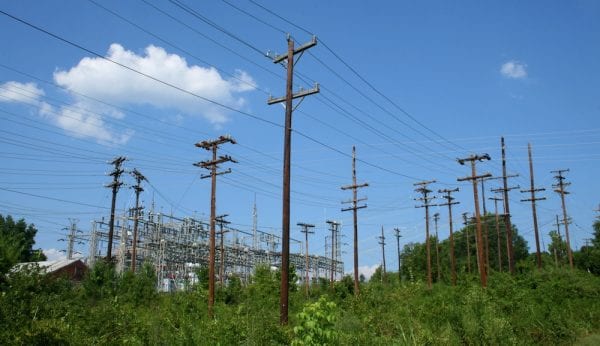
Arkansas Can Expand Broadband Capability Through Existing Utility Poles
Taxpayers Protection Alliance
August 17, 2015
The need for increased broadband deployment is not in dispute as more people than ever before rely on faster Internet service for many aspects of everyday life. The question is whether the private sector or the government is best equipped to provide those faster services. A twist on the “private sector vs. government” debate is the case in Arkansas where wireless carriers are trying to get the public service commission to uphold their right under federal law to put “small cell systems” on telephone poles for better service. The need for enhanced wireless and broadband is clear considering Arkansas ranks 49th nationwide when it comes to Internet connectivity.
For decades, cable and Internet providers have been using utility poles to ensure access to households, so using utility poles for telecommunications services is not a new concept. The use of existing utility poles is an important deployment opportunity for the many “small cell systems” that are now seen as potential tools to deploy broadband. The fight is over whether the electric utilities will allow wireless equipment on utility poles, and if so at what cost. Wireless carriers have agreed to pay the rate that cable companies have been paying, and they have also said they will comply with any and all required safety guidelines.
Notwithstanding the real problem Arkansas has with Internet connectivity, excessive fees are also a threat to taxpayers and consumers that should be addressed. With an average pole attachment fee of $7 nationwide, the Arkansas PSC should not allow the electric utilities to look at this as an opportunity to price gouge. Taxpayers Protection Alliance (TPA) Senior Fellow Drew Johnson wrote about a fight in Tennessee over legislation imposing these types of discriminatory fees:
Nationally, this “pole attachment fee,” as it is known in the industry, averages just over $7 per pole, per year. In Tennessee, however, the average fee charged by electric companies is currently more than $17 annually for each pole — well more than the amount necessary to cover the cable and telecom companies’ portion of the installation and maintenance costs.
If Watson’s bill passes, that already hefty $17 average charge will skyrocket to $33 per pole, per year — making Tennessee’s pole attachment fees more than twice as high as any other state in the nation, according to the Federal Communications Commission.
The role of the Federal Communication Commission (FCC) is critical to this debate. In Section 224 of the federal Communications Act, the agency is authorized to, “regulate the rates, terms, and conditions of pole attachments to provide that such rates, terms, and conditions are just and reasonable.” There’s good news and bad news on this front. The good news is that FCC Chairman Tom Wheeler is committed to ensuring that utility pole attachment rates remain reasonable, saying, “I intend to ensure that you do not confront excessive rates for pole attachments.” Those remarks came in a speech at the National Cable & Telecommunications Association’s INTX convention in Chicago in May.
The bad news is that the FCC’s formula isn’t guaranteed to be adopted as a solution in Arkansas and depending on how the PUC decides to proceed (if they even do), an excessively high rate for utility pole attachments could become yet another barrier to broadband expansion in Arkansas.
More broadband means greater competition and increased quality of service, the goal Arkansas should be working towards. TPA will be actively involved in making sure the PUC makes the right decision. The best solution is one that benefits small businesses and consumers and will result in greater broadband capabilities in a state that is in desperate need to expand broadband service.
